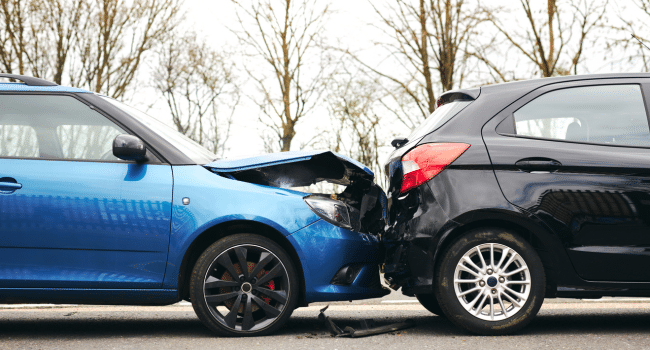Table of Contents
After a crash, adrenaline kicks in and your body goes into protective mode. You might step out of the car thinking, “I’m fine.” No bleeding, no broken bones, nothing that feels like an emergency. But here’s the catch: some of the most common and most disruptive car accident injuries don’t show up until hours or days later.
That delay can catch people off guard and leave them dealing with medical bills, pain, and insurance battles they never saw coming. If you’ve been in a collision, even a minor one, it’s essential to understand what delayed injuries look like, why they happen, and how to protect yourself legally and medically.
Working with a Lebanon car accident lawyer will help ensure your rights are protected and that you understand the full compensation you are entitled to.
Why Car Accident Injuries Are Often Delayed
Right after a crash, your body releases adrenaline and endorphins. These hormones can mask pain and make you feel clearer, stronger, and calmer than you actually are. Once those chemicals fade, injuries that were quietly developing become apparent. Inflammation increases. Muscles tighten.
The body stops compensating. It hits you all at once.
On top of that, some injuries, especially soft-tissue injuries, brain injuries, and internal injuries, simply take time to reveal themselves. They develop slowly, and symptoms can be subtle until they suddenly aren’t.
Common Injuries With Delayed Symptoms
Not every injury announces itself right away. Here are some that often sneak up after a crash:
Whiplash
One of the most common delayed injuries, whiplash, happens when the neck is jolted back and forth quickly. Symptoms might not show for 24–48 hours and can include:
- Neck stiffness
- Headaches
- Shoulder pain
- Dizziness
- Limited range of motion
Even a “minor” rear-end collision can cause significant whiplash, disrupting daily life.
Concussions and Mild Traumatic Brain Injuries (TBIs)
You don’t need to hit your head to get a concussion. The sudden force of a crash can cause the brain to move inside the skull. Symptoms often show up slowly and may include:
- Confusion or brain fog
- Headaches
- Light sensitivity
- Mood changes
- Memory issues
- Nausea
Left untreated, even a mild TBI can lead to long-term problems.
Back and Spinal Injuries
Muscle strains, herniated discs, and soft-tissue injuries often develop gradually. You might feel fine at first, but then wake up days later barely able to bend or twist. Warning signs include:
- Lower back pain
- Shooting pain down the legs
- Numbness or tingling
- Stiffness
Spinal injuries can get worse quickly if ignored.
Internal Injuries
Blunt-force trauma from seatbelts, steering wheels, or airbags can cause internal bleeding or organ injuries. Symptoms may not appear immediately and can include:
- Abdominal pain
- Deep bruising
- Dizziness
- Shortness of breath
Internal injuries are serious and require emergency care.
Emotional and Psychological Injuries
Not all injuries are physical. Anxiety, nightmares, fear of driving, and even symptoms of PTSD can appear days or weeks after the event. These emotional injuries deserve attention and treatment just as much as physical ones.
Why Delayed Symptoms Matter for Your Claim
Insurance companies love to hear “I’m fine” at the scene of a crash. They use early statements against victims later, when symptoms appear. If you don’t report injuries right away, they may claim:
- Your injuries weren’t caused by the accident
- Your symptoms are exaggerated
- You waited too long to get medical care
This is one reason people turn to a car accident lawyer in Lebanon early in the process. Having someone in your corner from the beginning helps ensure your injuries are documented correctly and your rights are protected.
What to Do If Symptoms Appear Later
If you start experiencing pain, stiffness, headaches, or other delayed symptoms after a crash, take these steps ASAP:
1. Get Medical Care
Don’t wait to “see if it gets better.” Early diagnosis protects both your health and your claim. Tell the doctor you were in a car accident so they know what to check for.
2. Follow All Treatment Recommendations
Insurance companies jump at the chance to deny claims when victims skip appointments or ignore medical advice.
3. Document Everything
Track:
- When symptoms began
- What makes them worse
- How they impact your daily life
- What treatments do you receive
This evidence matters down the line.
4. Talk to an Attorney Before the Insurance Company
Insurance adjusters are trained to minimize payouts. A lawyer can guide you on what to say, what not to say, and how to avoid mistakes that can cost you.
Why Local Legal Help Matters
Car accident cases aren’t just about injury; they’re about navigating local courts, insurance adjusters, and documentation rules. Working with a Lebanon, IN auto accident attorney means you get help from someone who knows the community, the process, and the patterns of local insurance companies.
Why Choose Vaughn A. Wamsley
understands that delayed injuries can be stressful, confusing, and financially draining. He takes the time to listen, gather the right evidence, and push back when insurance companies try to reduce or deny legitimate injury claims.
Whether you need quick advice or full representation from an accident lawyer in Lebanon, Vaughn delivers straightforward guidance backed by experience.
Don’t Ignore Delayed Symptoms—Protect Yourself
Just because you felt fine at the scene doesn’t mean you’re in the clear. Delayed injuries are real, and they can impact your health, work, and financial stability. If symptoms show up hours or days after a crash, get medical help and talk with an attorney who can steer you in the right direction.
If you’ve been in an accident and symptoms are starting to appear, reach out to Vaughn A. Wamsley today. The sooner you get clarity, the better protected you’ll be.
